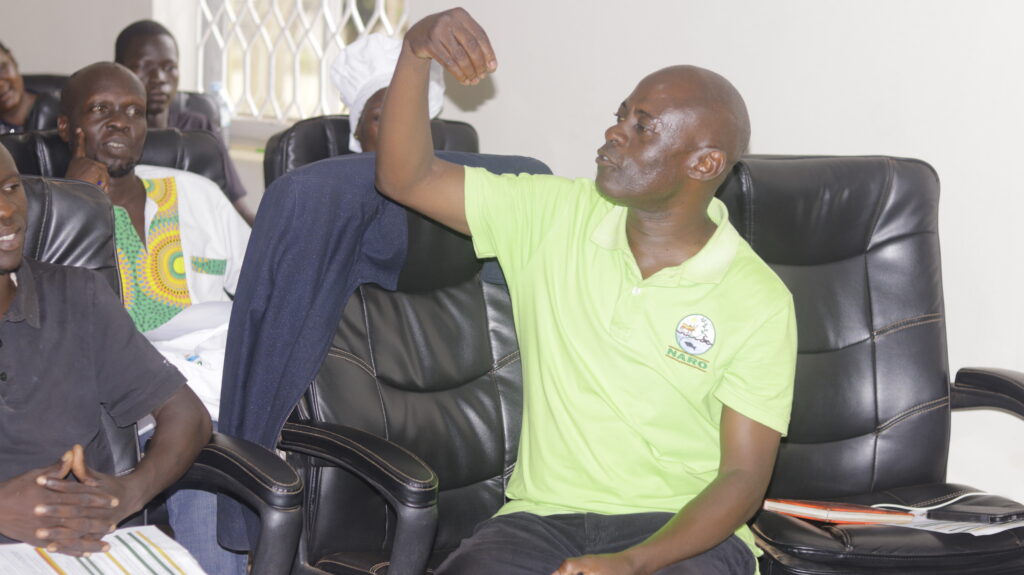WEST NILE! Meat Processors Tipped On Public Health, Product Development And Quality
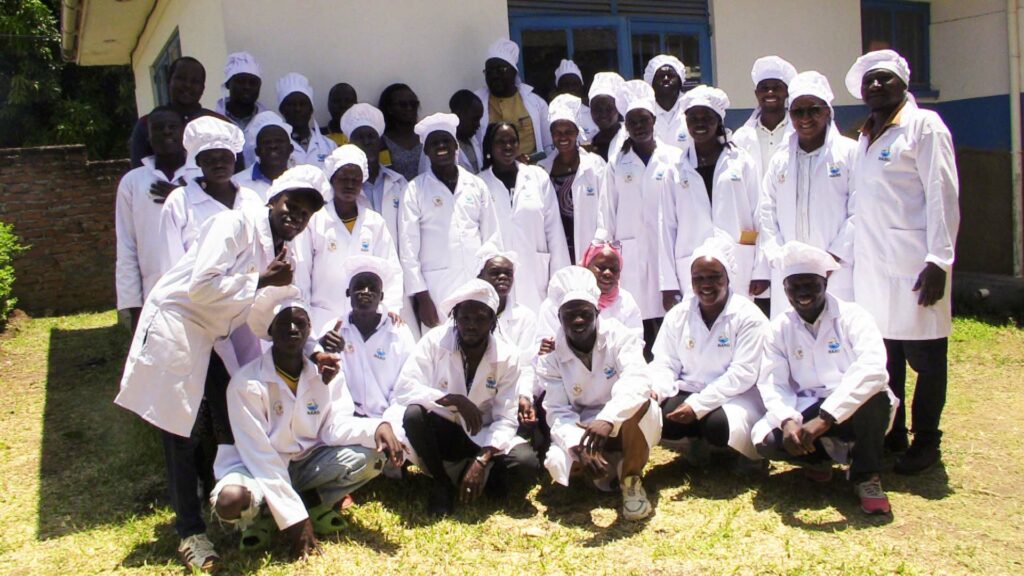
Group photo of trainees in front of a meat processing facility in Arua city
ARUA. Goat meat processors and traders in the West Nile sub-region have been trained on the minimum requirements for public health, product quality and the development of brands for their products.
The five-day training that started on Monday, March 17, 2025 at Abi Zonal Agricultural Research and Development Institute (AbiZARDI), was conducted by Scientists from the National Agricultural Research Organization (NARO) and Makerere University.
At least 30 goat processors and traders, mainly from urban and pre-urban areas of Arua City and Koboko district, benefited from the training.
The training which is part of the ‘Catalyzing Goat Value Chains (CAGOV) to Increase Climate Resilience, Incomes and Assets of Smallholder Farmers and Urban Youths in West Nile project’ funded by the Competitive Grant Scheme (CGS) Cohort 6, later ended with a practical aspect of goat slaughtering, preservation and processing at Peter Jurua’s meat processing plant in Mvara cell, Arua Central Division, Arua City.
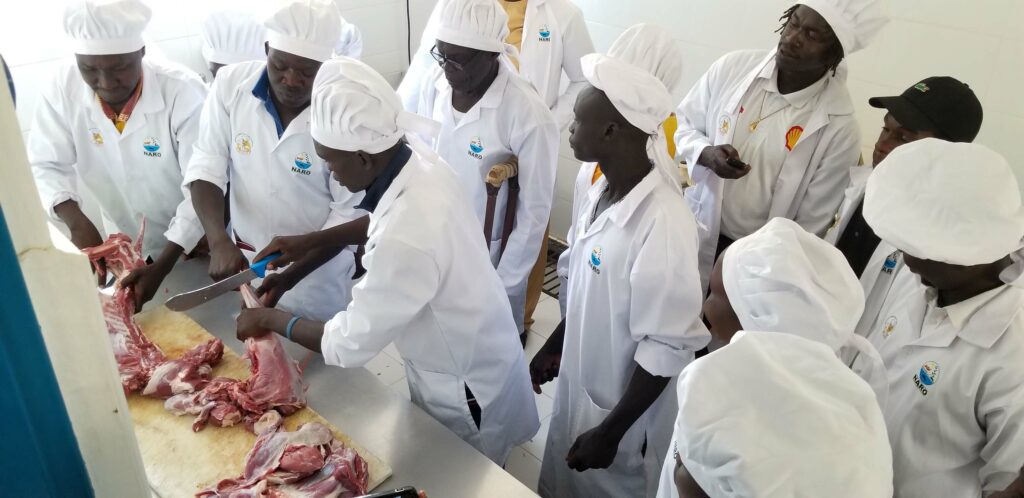
During the training, Dr. Denis Asizua, a Livestock Production Scientist with NARO, said they organized the training to address the rudimentary way of meat roasting in the region.
“As many of you would see, the methods of processing, the methods of meat handling, the methods of meat roasting are more of what I would like to call rudimentary. There is no specific attention to public health, there is no specific attention to cleanliness, and there is no specific attention to product integrity,” Asizua said.
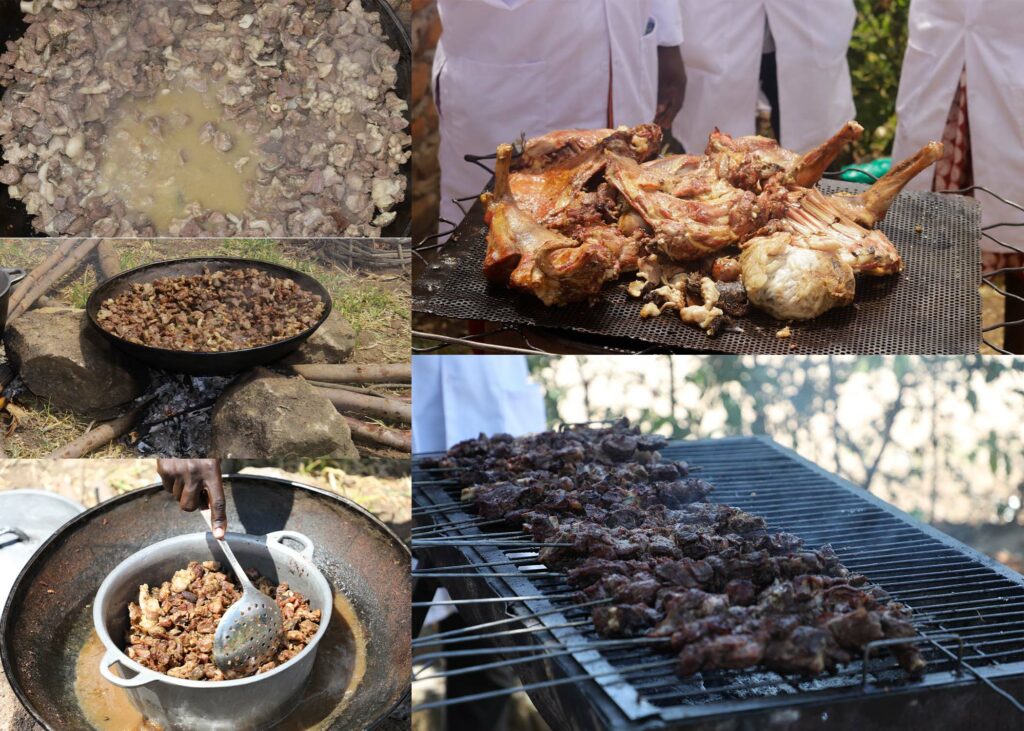
“So, what we want to do is bring to the attention of these youths and women who are processing these meat products – that you know when you deal with meat, there are some basic things that you need to do to keep your customers happy. The first one is, your product should be unique. That uniqueness will keep your customers with you,” Asizua added.
He said the second aspect is the environment in which one is preparing the meat, whereby somebody who comes to buy the meat for the first time can appreciate that the environment in which the business is being operated is clean.
“The third one is that there are some public health issues to do with meat especially like dressing. You will find that these guys don’t even dress in the most basic way. So, we want to see that they are able to understand these things and they know that their dressing alone can attract somebody who has never been in West Nile and this person will be able to market their products elsewhere,” Asizua remarked.
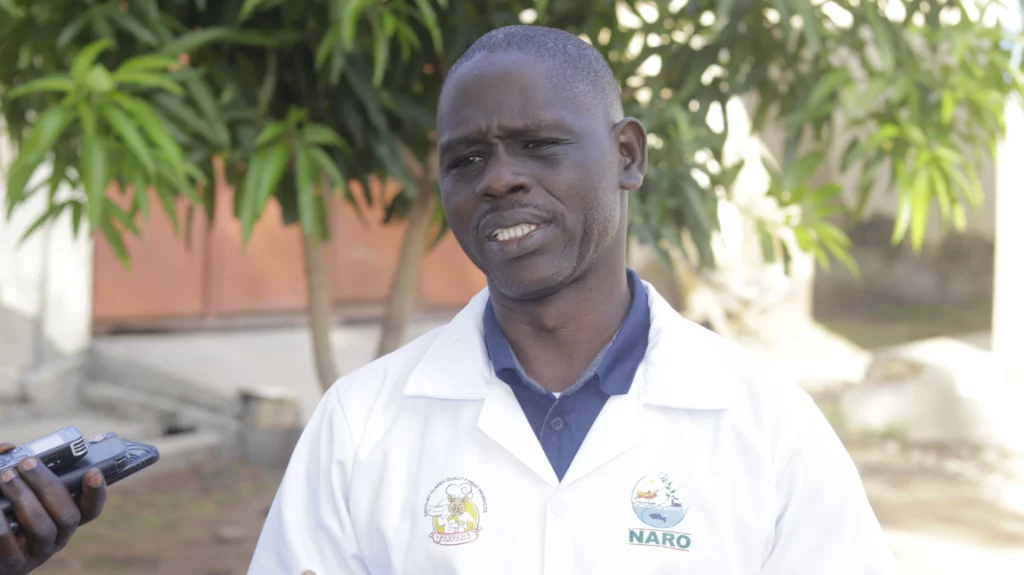
Asizua noted that they also looked at the aspect of business efficiency. He said the stoves and drums the meat processors use for roasting the goats are energy inefficient because they use a lot of charcoal, firewood thus losing a lot of energy.
“Now, that means that it takes away their profits. So, we have trained them to see that the tools they use are efficient and the inputs that they use are efficient so that their profit margins can be enhanced. So, you can see that the whole idea is to enhance their profit margins through attraction and retention of customers for clean plant practices, public health sensitive practices besides reducing the cost of acquiring inputs by linking straight to some farmers,” Asizua explained.
Similarly, Dr. Kanifa Kamatara, a Lecturer in the department of Animal Science in the College of Agricultural and Environmental Sciences at Makerere University, said their emphasis was on the hygiene, packaging and the marketing of the meat products in West Nile.
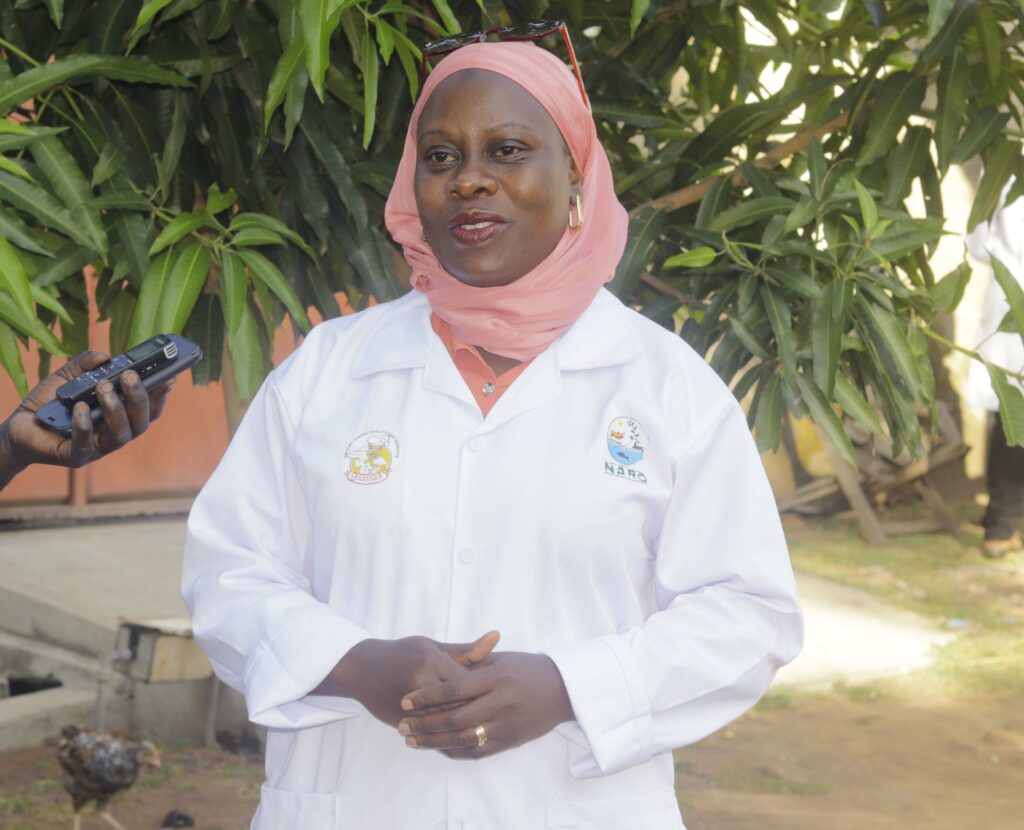
“Yes, they have been doing it but then something is not right and it is all about polishing them a little and you see them thriving. You saw what they did during branding, how creative they were but they just needed someone to trigger them, just tap into their innovativeness, polish it and you see them thriving,” Dr. Kamatara said.
Meanwhile in his presentation, Dr. Farouk Semwogerere, a Senior Research Officer at at NARO Abi ZARD, advised the meat processors and traders to minimize stress before and during the process of slaughtering a goat so as to achieve soft and tender meat.
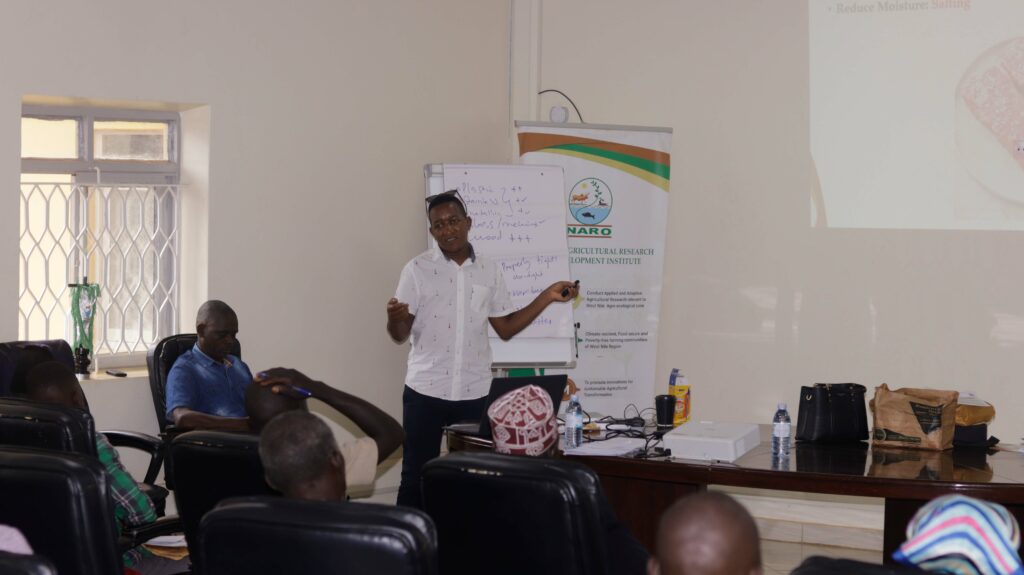
He emphasized the need to also avoid contamination during meat handling and control temperature to reduce microbial growth to prolong meat shelf life.
“Locally, we can store meat in cool areas or in water and apply salt into the water to minimize microbial growth,” Dr. Semwogerere said.
It is for this reason that Alice Afekuru, a trainee who had given up on the meat roasting business after six years of service, said the training has awakened her to rejuvenate the business.
“I want to thank NARO for this training because it has awakened me from sleep. Actually, I had already given up on my Muchomo business, but with this training, I’m going to start work again. I’m happy about it! I have been roasting Muchomo around Sambia, a suburb of Arua city but for the last one month, I stopped the business,” Afekuru stated.
Afekuru said whatever she has learnt during the training has made her see far compared to what she was before.
“I have learnt about maintaining our place of work, hygiene and how to keep the meat clean, how to clean the environment to see that our clients are safe from the risk of contracting diseases. Some of us have been working without knowing these things but now we have learnt how to keep our meat clean and how to be sincere with our customers. So, I’m extremely happy for this opportunity given to me by NARO,” Afekuru said.
Allan Odama, another meat processor, also commended NARO and Abi ZARD for the opportunity given to them to undergo through the training which has specifically equipped him with the knowledge on meat processing in general.
“From here on, as I go back to my business, I see there are a lot of changes that I’m going to make, starting from the building of my charcoal stove, meat processing, hygiene, the branding, the customer care and the way service is generally done. I think I have to go a notch higher than what I have been doing before. So, this training has given me a lot of information that I literally didn’t know about and now I see it is going to be an easier way for me to move forward in order to grow my business,” Odama promised.
However, Jurua said with the setup of meat processing machinery at his Savoury Classic Quality meat products, he intends to serve his customers better given the knowledge he has acquired from the training.
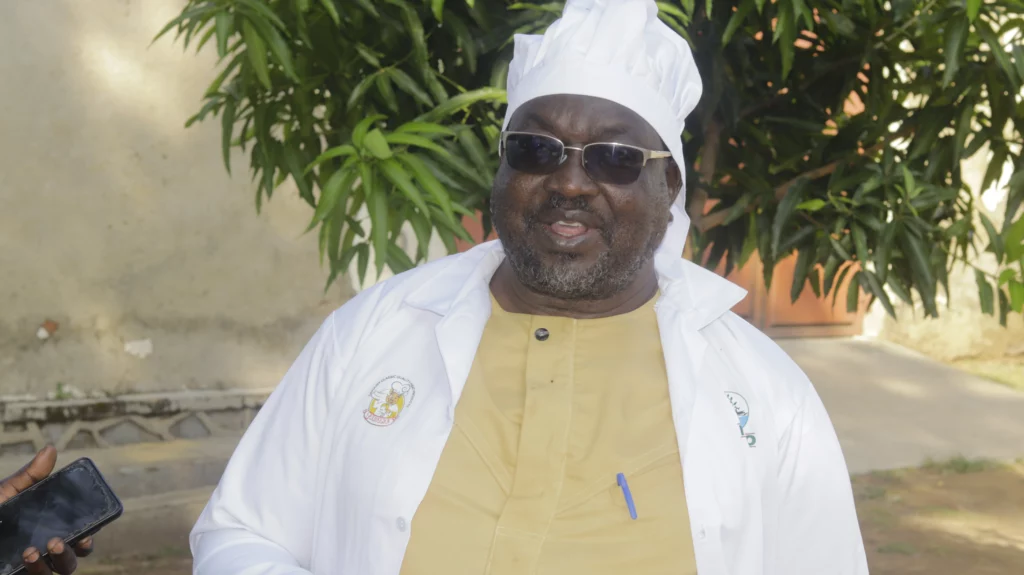
With 37 years meat-roasting experience in Arua town, Salim Musa, said there is a lot he has been doing ignorantly until NARO came up with the training which has given him the opportunity to learn about personal hygiene and customer care as the key factors in growing meat business.
Speaking on behalf of NARO Abi ZARD Director, Dr. Emmanuel Odama, a Soil Scientist, said it is his hope that the few skills attained during the training will make the meat processors and traders have a better age, not only to make better money but also to provide quality services to the community because community health is a very important thing especially if the trainees have humanity at heart.
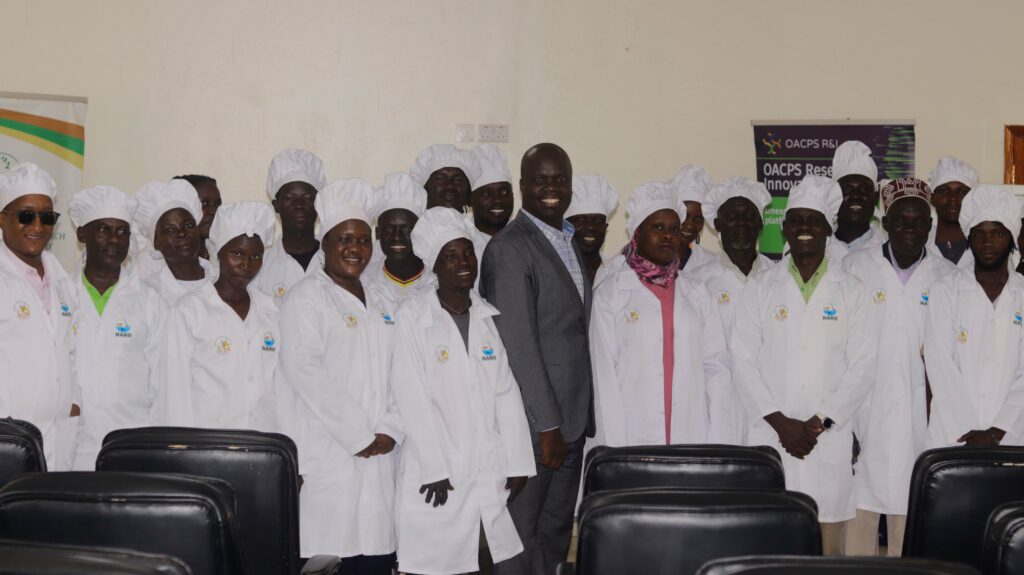
“There are places where people are driven so much by profits, they do things in a very bad way as long as it has sold but they don’t think about the safety, the health of the community. I think that is not a good thing. We should be able to put community health at its right place and not sacrifice it because we want profits and better money in our pockets,” Odama advised.
The training culminated with Peace Clement Ejua, the Program Leader for Technology Promotion and Outreach at NARO Abi ZARDI nurturing the formation of Multi Stakeholders Innovation Platform ( MSIP) called ‘ West Nile Goat Processors Association (WeGPA) that elected Peter Jurua as their Chairperson to stare the association.
